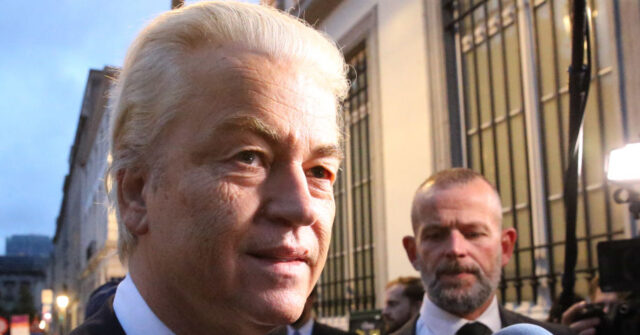In the aftermath of a violent incident in Amsterdam targeting Israeli football fans, Geert Wilders, the leader of the Dutch Party for Freedom (PVV), has called for the deportation of the attackers. Following a “pogrom” described by many, including Wilders himself, he met with Israeli officials at Schipol airport to address the concerns of those affected. The attacks, which involved gangs on motorbikes seeking out Israeli individuals, raised serious questions about the security alongside the effectiveness of local law enforcement. Despite the large police presence, they struggled to control the situation, as described in reports of hit-and-run incidents where attackers quickly vanished after committing their crimes.
Wilders’ remarks invoke a retrospective analysis of the past decade under the centrism of Mark Rutte’s government, suggesting that the longstanding hesitance to address Islam as a contributing factor to anti-Semitism has exacerbated the issue. He lamented that previous administrations failed to address the underlying problems of crime related to immigration and proposed a dramatic shift in policy. By framing the attacks as a consequence of the mass immigration and Islamization process in the Netherlands, he underscored his belief that strong measures, including the expulsion of perpetrators, are necessary to safeguard public safety.
The tension surrounding Wilders’ controversial stance reflects the complex landscape of Dutch politics, in which he operates as a significant but unofficial power broker. Although Wilders’ party emerged as the largest in the late 2023 elections, his decision to sidestep the Prime Minister role to forge a coalition left him strategically powerful — capable of influencing policies yet distanced from administrative responsibilities. His frustrations were evident as he publicly demanded an emergency cabinet meeting to respond to the violence, drawing parallels between Amsterdam and conflict-stricken regions like Gaza.
The politicization of the violence has ignited debates among various factions, with some dissenting voices questioning the characterization of the attackers. Critics, including journalist Paul Vugts, have challenged Wilders’ assertions and whether he could definitively identify those responsible, suggesting that perpetrators might be native Dutch citizens rather than predominantly immigrants. The existing tensions highlight the broader unease surrounding discourse on immigration, crime, and national identity within the Netherlands.
Additionally, the presence of the political party Denk within the Dutch landscape complicates the conversation. Led by Stephan van Baarle, the party has taken a critical stance on how the attacks were handled and has voiced concerns about the actions of the Israeli fans themselves. Van Baarle’s remarks emphasize the multifaceted nature of the discourse, as he highlights a perceived hypocrisy in the reactions to violence, aiming to redirect focus onto the behaviors of certain groups rather than solely on the actions of the attackers.
As the conversation continues, the clashes between political ideologies and demographic tensions in the Netherlands are apparent. Wilders’ populist, anti-Islam rhetoric, paired with the widespread fear following the attacks, indicates a potential shift in public sentiment related to immigration and national security. The resulting political dynamic challenges the traditional consensus politics in the Netherlands, suggesting a fracturing discourse that may have lasting implications for the country’s policies on immigration, social integration, and responses to violence fueled by ethnic and religious tensions.

